Responsible Business Conduct/Corporate Social Responsibility (RBC/CSR) is of great significance to safeguarding the sustainable development of the global economy and creating a healthy business environment. As the world becomes more interconnected, China plays an increasingly important role in the global economy, and China is also a staunch promoter of the Sustainable Development Goals, promoting responsible business practices among governments, businesses and other stakeholders/ The significance of corporate social responsibility is particularly important.
The textile industry in the eastern coastal areas of China is concentrated, and it is also a key demonstration area for promoting corporate social responsibility in China. In the current important period of upgrading and transformation of the textile industry, how to combine China's work in promoting corporate social responsibility, focus on domestic experience and international perspective, and help Chinese enterprises meet major challenges and seize key opportunities in the process of practicing responsible business behavior at home and abroad, Become the focus of various stakeholders including international organizations and industry associations.
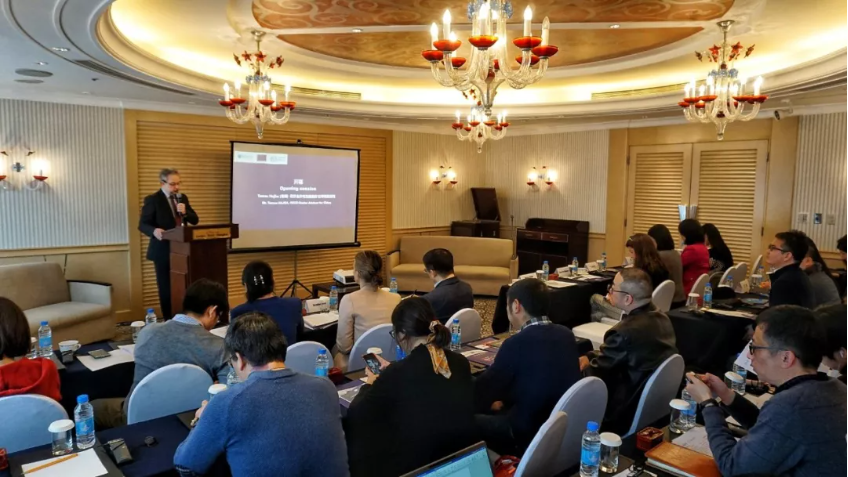
On January 16, 2020, the Organization for Economic Cooperation and Development (“OECD”) and the Consulate General of the Kingdom of the Netherlands in Shanghai jointly held the theme event “Encouraging Responsible Business Conduct: Domestic Experience and International Perspective” in Shanghai, China Textile Confederations of industry also supported the event.
The event invited nearly 50 guests from Shanghai and surrounding provinces and cities, including textile enterprises and industry representatives, representatives of international textile brands, industry experts, and research scholars. Discussion on sustainable development issues.
The meeting was opened by Tamas Hajba, OECD Representative in China and Senior Advisor for China Affairs, and Anne-Roos Wasser, Deputy Consul and Deputy Head of Economic and Commercial Affairs of the Consulate General of the Kingdom of the Netherlands in Shanghai.
In his opening speech, Haibo emphasized the importance of promoting Responsible Business Conduct (RBC) in the textile industry in the current global economic environment. He also introduced that the OECD is committed to creating a better life through better policies. As a leading intergovernmental international organization in policy research, it continues to promote responsible business practices around the world through multilateral cooperation, and provides specific Action guides and tools.
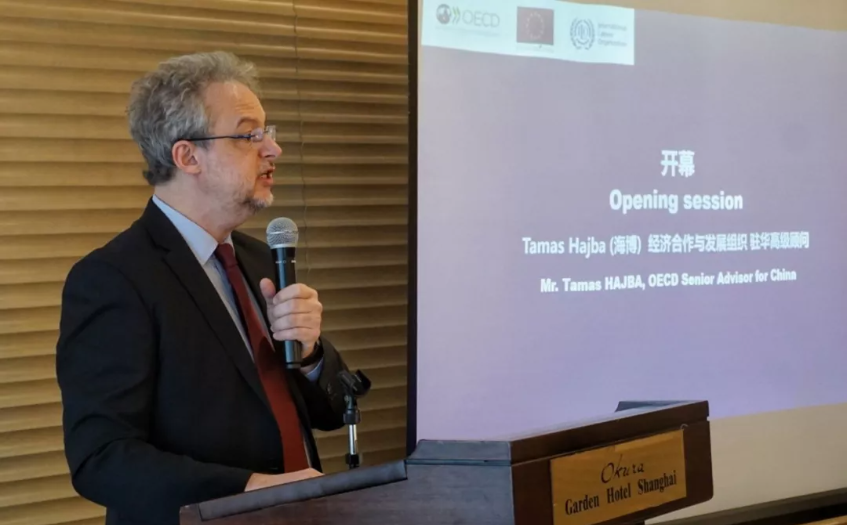
In China, the OECD has carried out exchanges and cooperation with government departments and industry organizations including the textile industry and electronic information industry, so as to adapt policies and tools for responsible business conduct to local conditions and to suit the needs of Chinese enterprises. He said that the world is facing many challenges, but we must insist on making "globalization work for all", and let governments and more institutions, organizations, enterprises and individuals join the responsible business conduct (RBC) action , working towards a common vision.
Shui Anru, deputy consul and deputy director of economic and commercial affairs at the Consulate General of the Kingdom of the Netherlands in Shanghai, mentioned that the textile industry is a key factor driving global economic development and improving people's living standards. But the social and environmental challenges associated with rapid development are issues that we need to address together. 80% of the Dutch textiles come from China, and Dutch companies have an impact on the world through the supply chain. The sustainable development of China's textile industry is also a responsibility that the Netherlands needs to shoulder together.
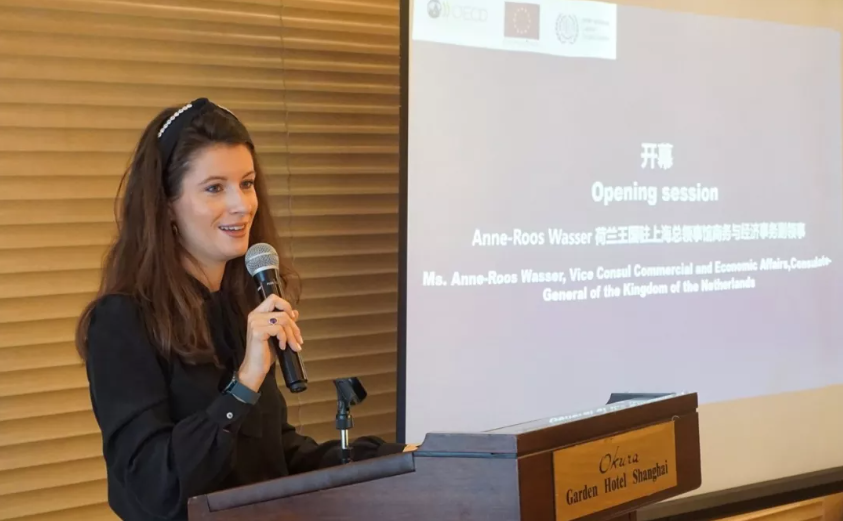
The Dutch government hopes to focus on and promote responsible business conduct globally in a positive way, helping companies to raise awareness, better comply with relevant guidelines and apply them effectively. The Netherlands hopes to work with China and all partners to jointly promote responsible business practices and improve the sustainable development of the textile industry supply chain.
Expert Views - How Supply Chain Due Diligence Helps Sustainable DevelopmentNext, the conference held a panel discussion session, where industry experts from various fields gave speeches on "Supply Chain Due Diligence, Why It Matters and How to Help Sustainable Development".
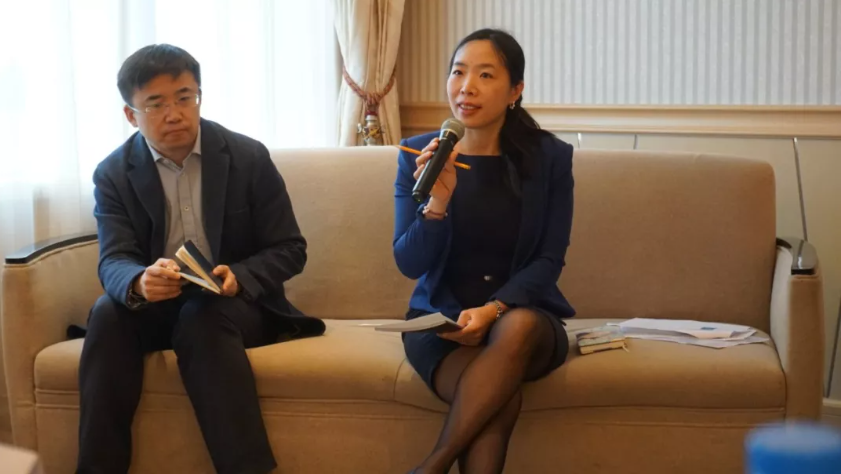
Chen Jingjing, Policy Advisor of the Center for Responsible Business Conduct of the OECD, introduced the important role of Responsible Business Conduct (RBC) in the relationship between the OECD and China, and shared the latest work progress of the Center for Responsible Business Conduct of the OECD in China , including the formulation and application of guidelines for the footwear and apparel industry jointly promoted by China Textile United, and the promotion of the Chinese sector of the "Asian Responsible Supply Chain" project. She expressed that she hoped to combine international experience with specific domestic needs, through in-depth exchanges and capacity building activities, to effectively enhance enterprises' awareness and ability of responsible business behavior.
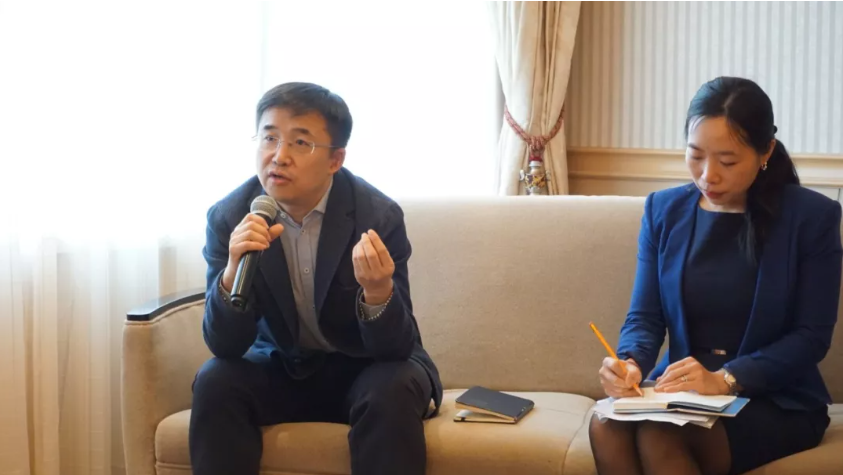
Dr. Liang Xiaohui, chief researcher of the Social Responsibility Office of China National Textile and Apparel Council, introduced the content and progress of the cooperation between the OECD and the China Textile Federation, as well as the help and impact of international standards on China.
Dr. Liang Xiaohui mentioned that under the overall cooperation framework between China and the OECD, in 2018, China Textile Federation and the OECD signed a memorandum of cooperation on the promotion of responsible business behavior based on various forms of cooperation. Cooperation to better integrate responsible business practices into Chinese textile enterprises, and at the same time enhance the international influence of Chinese enterprises. Under the same interests and pursuit of vision, the local transformation and implementation of international standards can help Chinese enterprises to better understand and apply them.
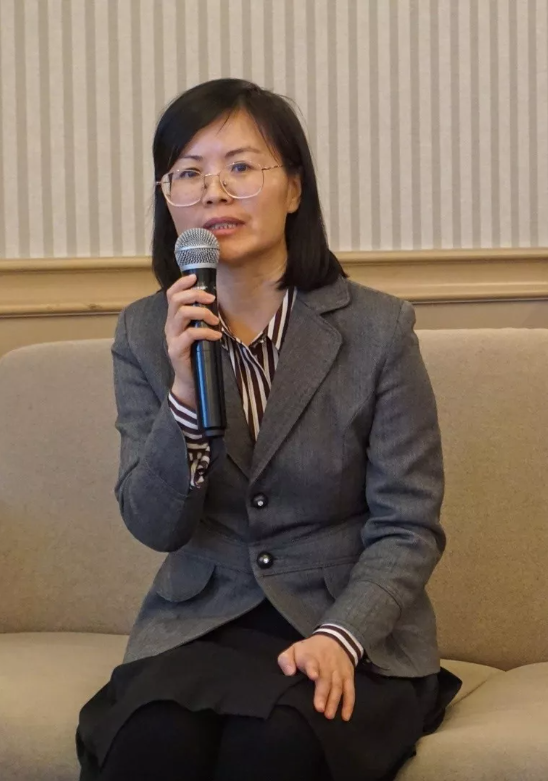
Ji Cuijie, project coordinator of the China-Mongolia Bureau of the International Labour Organization, shared the work of the International Labour Organization on labor and employment. The mission of the ILO's work is to promote decent work, and in the "Responsible Supply Chains in Asia" project, which is jointly promoted with the OECD, the ILO will be guided by the MNE Declaration to help governments and governments in labour and employment. Businesses provide advice. Ji Cuijie also mentioned the positive and negative impacts of the rapid development of the digital economy on labor employment in recent years. The International Labor Organization will also provide research support on China's digital labor platform and labor protection issues in the future.
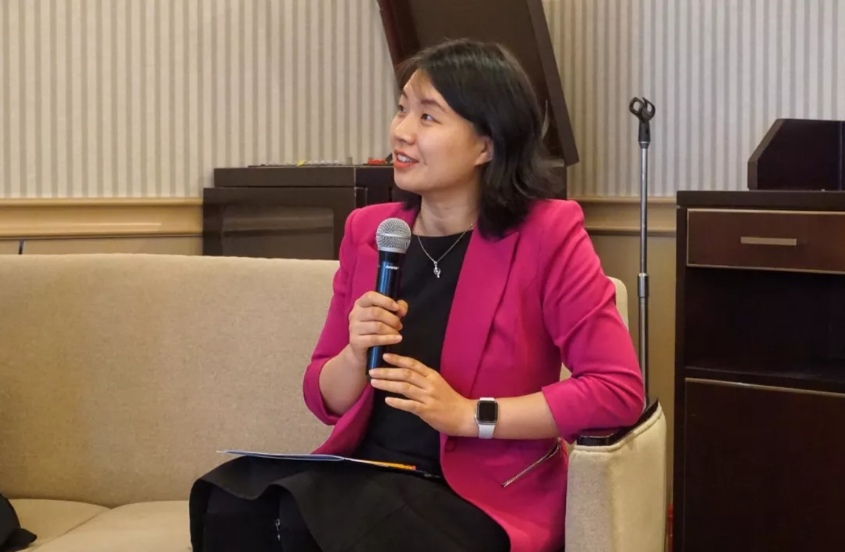
Dr. Li Li, an assistant researcher at the Institute of International Economics at the University of International Business and Economics, introduced the latest trends and challenges in responsible business conduct and corporate social responsibility. As China's economy and society move towards high-quality development, more and more companies are turning to focus on the economic, social and environmental impacts of their own business activities and core businesses, integrating corporate social responsibility with core businesses, and more closely aligned with the United Nations Sustainable Development Goals. development goals. In terms of supply chain management, multinational companies and buyers also tend to pay attention to the construction of supplier capabilities and partnerships, and to promote the establishment of a community of interests.
In-depth Interpretation - Current Situation and Challenges of China's Textile and Apparel Enterprise Supply ChainDr. Liang Xiaohui, chief researcher of the Social Responsibility Office of China Textile Federation, shared the preliminary results of the "Research Project on the Current Situation of Supply Chain Due Diligence Management of Chinese Textile and Apparel Enterprises", and consulted the participants on the changes, challenges and practices faced by enterprises.
This research was carried out by the China Textile Federation Social Responsibility Office and the OECD Center for Responsible Business Conduct. Provide valuable reference for expanding responsible and sustainable supply chain layout.
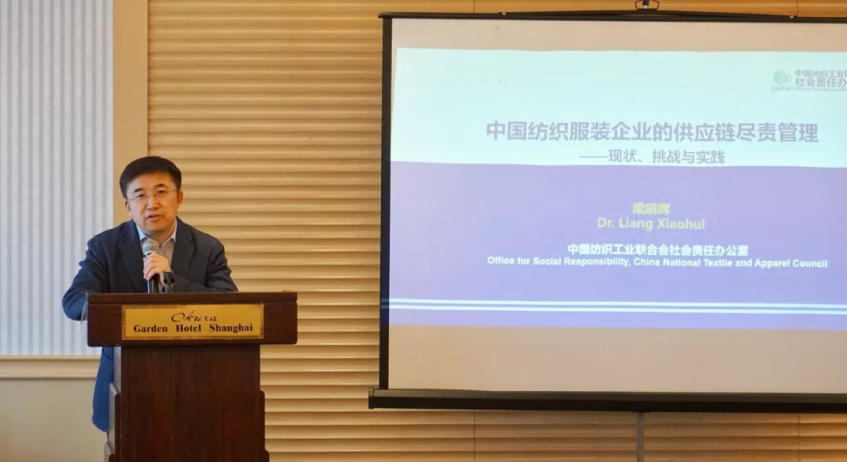
Clothing companies, international brands, representatives of third-party organizations and industry experts who attended the meeting gave speeches, and based on their professional experience, they expressed constructive opinions on the research report of the project. According to the negotiated project arrangement, China Textile Federation and OECD will organize two more opinion consultation meetings on the research report, so as to revise the report in a targeted manner on the basis of widely listening to the opinions of all parties.
Practical exercise - integrating risk-based due diligence into real-world scenarios
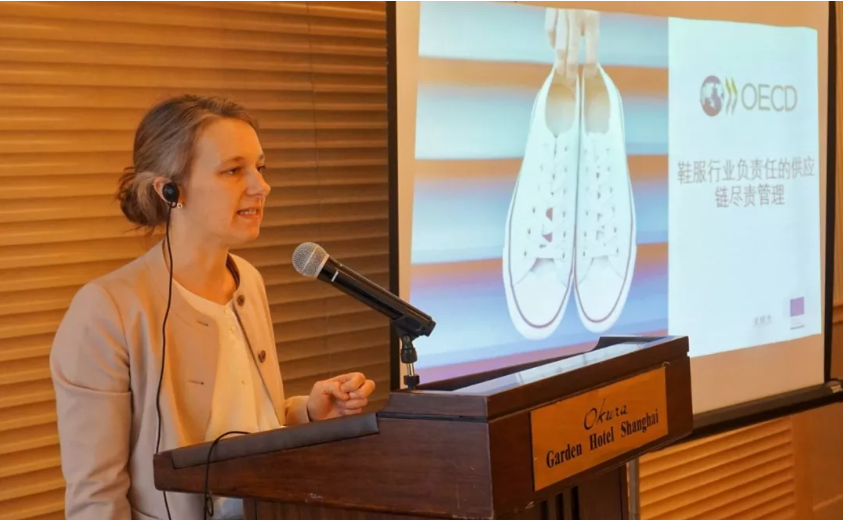
During the Scenario Workshop, attendees have group discussions on how to apply due diligence practices to a range of scenarios common in their industry. Dorothy Lovell, policy advisor from the Center for Responsible Business Conduct of the OECD, introduced the connotation and specific implementation process and steps of the responsible business conduct due diligence method to the participants, and guided the participants to integrate this risk-based approach into the real world. It can improve its ability to carry out due diligence management in practical operation.
Under the guidance of Chinese and foreign experts, the participants were divided into two groups to discuss different scenarios. Scenarios have different focuses, focusing on how to integrate responsible business conduct into a company's policies and management systems, and how to identify risks and prioritize actions based on actual circumstances. Participants discussed the key findings of the scenario case around the guiding question, analyzed the main challenges faced by the case company, explored possible solutions, and concluded what content of due diligence can further guide the implementation of the work.
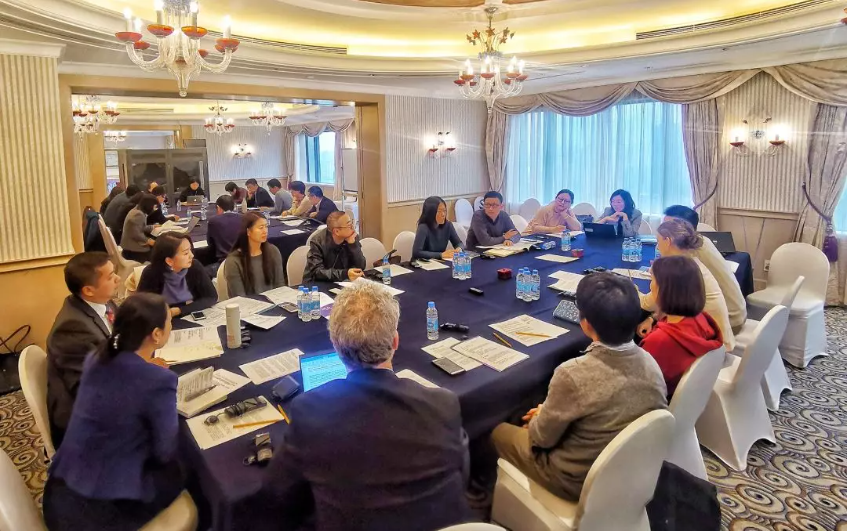
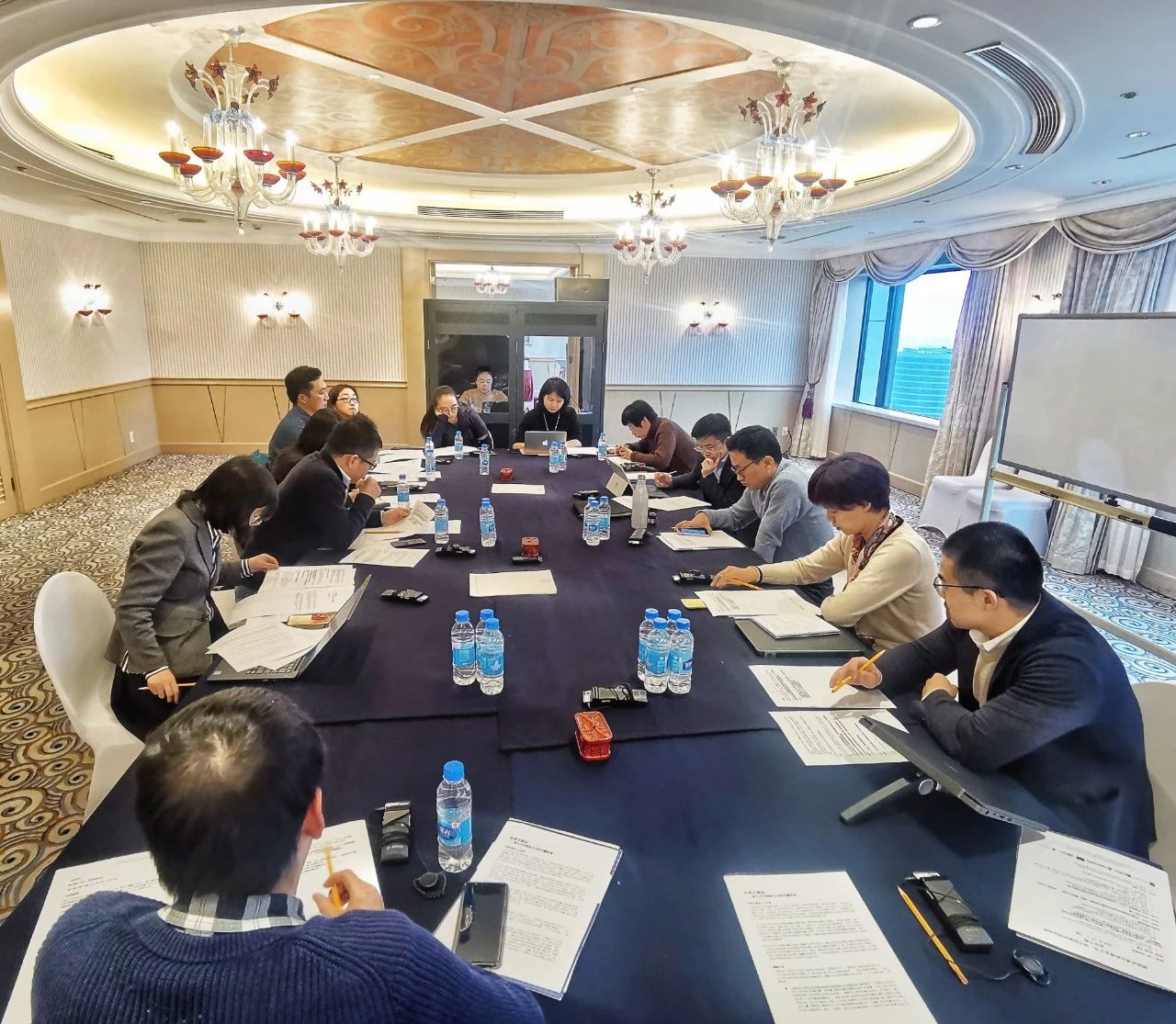
Finally, Liang Xiaohui, chief researcher of the Social Responsibility Office of China Textile Federation, and Chen Jingjing, policy consultant of the Center for Responsible Business Behavior of the OECD, made a summary for the theme activities. This event created a good platform for the in-depth promotion of responsible business practices in China, and also kicked off the OECD's "Asia Responsible Supply Chain Project" capacity building activities in China's textile industry. The project is funded by the European Union and implemented jointly by the OECD and the International Labour Organization.
In the future, the OECD hopes to actively incorporate the support and strength of industry organizations and enterprises on the basis of further strengthening the partnership, design, develop and provide more effective policies and methods, promote the integration of Chinese experience and international vision, The promotion of business practices, the realization and pursuit of a common vision, and the creation of a better life.
Source Golden Bee